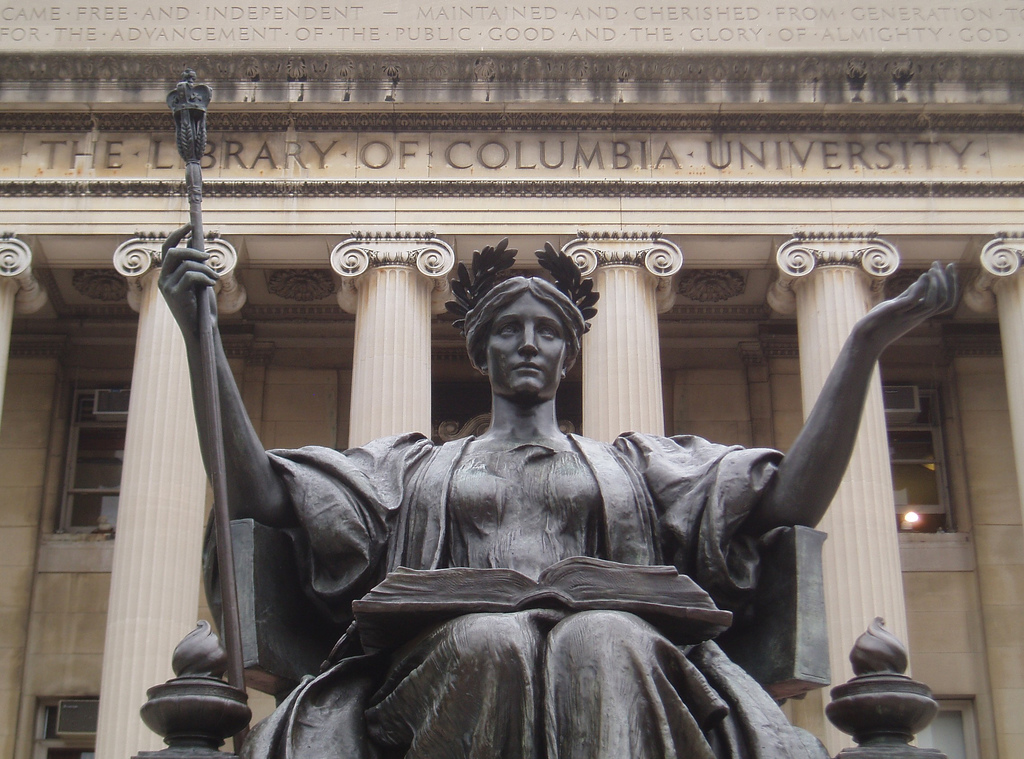A recent class action filed against Columbia University is the latest in a stream of lawsuits against elite institutions in the past few years. What has motivated our current litigious climate against highly ranked universities? Class action complaints have alleged everything from racial discrimination in the admissions process to violations of anti-trust law, but there seems to be one underpinning assumption. These lawsuits imply that our elite institutions are legally bound to be what they apparently represent in our culture: insurers of meritocracy. The Columbia lawsuit stands out because it highlights a tension in that assumption. The filed complaint simultaneously charges Columbia for failing to provide students with the prestige they feel the university is mandated to provide and recognizes Columbia as a business entity in the practice of marketing itself and its services. Can our universities be both? And more importantly, can interested businesses be legally held as ultimate guarantors of meritocracy?
Following the publication of an article written by Columbia math professor Michael Thaddeus, in which he asserted that Columbia University was misreporting data to U.S. News and World Report (USNWR) University rankings, a proposed class action was filed on June 12th charging Columbia with breach of contract, unjust enrichment, and violation of General Business Law. The lawsuit (Campbell v. The Board of Trustees at Columbia University in the City of New York) follows directly from Thaddeus’ challenge to the accuracy of the data Columbia provided on the report’s various “measures of quality” such as class size, student-faculty ratio, graduation rates, and more. Thaddeus reported various discrepancies between figures provided by Columbia to USNWR and information reflected by other sources such as the University’s Directory of Classes and the US Department of Education.
The breach of contract charge alleged in the proposal submits the existence of a contractual relationship between student and University which binds both to a duty of good faith to act in accordance with the other’s “justified expectations.” The lawsuit alleges that Columbia violated that contractual relationship because students’ decisions to accept offers and pay tuition were substantively informed by the University’s ranking. Plaintiffs add that the alleged misrepresentation of data has called into question Columbia’s reputation and, by extension, the “value and legitimacy” of their University degrees.
The unjust enrichment charge maintains that Columbia was aware at all relevant times of the leverage a high USNWR ranking provided over enrollment and the price of tuition and fees. Plaintiffs then submit that Columbia knowingly enriched itself at the expense of Class Members in two major ways: 1) by depriving them of the benefit of enrollment at institutions with “measures of quality” consistent with a high USNWR ranking and 2) by depriving them of the difference paid in tuition to Columbia as opposed to other institutions they may have attended if provided with accurate data.
Finally, the alleged violation of General Business Law (GBL) defines Columbia as an institution in “the business of marketing and delivering education services… to the general public” and defines the Class members as consumers of said services. GBL protects consumers in business-consumer relationships from “deceptive acts or practices [committed] in the conduct of… business,” with which the University is charged.
The legal claims central to Campbell v. Columbia are unique within the context of recent lawsuits aimed at similar defendants. However, the underlying current behind these headline-making class actions seems to stem from the same dissatisfaction with perceived unfairness associated with top institutions.
Henry v. Brown, filed in January of this year, charged 16 top universities with violations of antitrust law through a conspiracy to price-fix amounts offered in financial aid to students. Two lines in this class action proposal highlight the ethos driving Campbell v. Board and similar claims: “In critical respects, elite, private universities like defendants are gatekeepers to the American Dream. Defendant’s misconduct is therefore particularly egregious because it has narrowed a critical pathway to upward mobility that admissions to their institutions represent.”
Campbell, Henry, and other plaintiffs have all brought forward case-specific claims, but they unilaterally aim to hold top universities to a certain standard of meritocracy. In the case of Campbell, the class action illustrates the frustration of students who understand their relationship to their university transactionally: they won acceptance based on merit, meaning Columbia ought to provide them with a prestigious degree. When the cracks in the appearance of meritocracy show themselves, however, the question remains: can we legally mandate top universities to be perfectly fair and meritocratic? In the case of Campbell, can we force them to transactionally provide what meritocracy implies they should? Can we penalize them for failing to do so?

